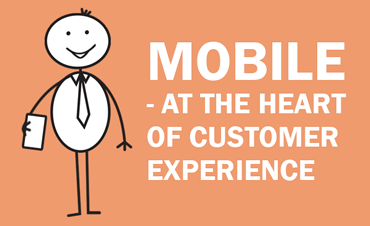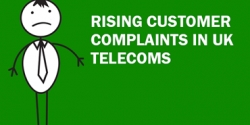Mobile – at the heart of the customer experience

According to new academic research people check their smartphones 85 times a day and use them for a daily average of 5 hours. The study, from Nottingham Trent University, also found that much of the time most users don’t even realize they are doing it, with consumers spending twice as much time on their phones as they think.
For many, their phone is the first thing they pick up in the morning and the last thing they put down at night, showing its central place in many of our lives. And smartphone penetration continues to grow – figures from Zenith Optimedia show that nearly two thirds (66.5%) of consumers in key digital markets such as the United States, Western Europe and Asia Pacific, will own smartphones by 2018.
This means that the smartphone is increasingly becoming the device of choice when making contact with companies, meaning that the mobile customer experience is vital for brands looking to differentiate themselves and engage with consumers. Fail to deliver what customers want, and, no matter how good your desktop experience, you are likely to lose business if you fail to deliver on mobile devices.
That’s why Forrester predicts that getting it right on these ‘mobile moments’ will be critical for companies in 2016. It points to three ways that mobile should be affecting overall business thinking for the year ahead:
1. Mobile is the catalyst for transformation
We are entering the Age of the Customer and mobile needs to be at the heart of any approach to customer experience. It cannot be treated as an add-on, but needs to be tightly integrated with the overall journey. People want a simple and seamless experience and they want to access it through the mobile device in their hand. Whether it is Apple Pay, mobile boarding passes or cinema tickets, ease of use is likely to ensure customers stay happy and loyal. This isn’t always easy to do, so companies need to take a mobile-centric approach to the customer experience if they want to succeed.
2. Time on mobiles is dominated by big brands
There may be tens of thousands of apps available but consumers aren’t using the vast majority of them regularly. Forrester found that 84% of time per month is spent on five or fewer apps, a concentration it expects to continue. This means that most time spent on mobile phones flows through big brands such as Amazon, Google, Apple and Facebook, with banks, retailers and travel apps only taking 10-15%. Companies outside this circle need to think hard about how they can differentiate themselves and also how they can partner with these brands to reach their key audiences.
3. Mobile automation will drive technology investment
Smartphones provide a huge amount of data to brands, particularly around location. At the same time consumers want a personalized service. If companies can use all of this data to provide a better experience, tailored to their needs, then people are likely to be happy to continue sharing information. On the other hand, if it is only used in intrusive ways, such as to serve advertising, brand reputation will suffer. Often, the mobile channel is accessed at the moment of need – when something has to be done NOW, meaning that brands have to provide a seamless, instant andconsistent experience and will not get a second chance to deal with any issues. Companies will therefore need to invest in mobile technology that can deliver this one to one experience.
It is very easy to see mobile as ‘another channel’ or simply a device that can be served with an app or a responsive website. But, a smartphone is essentially an multichannel device that can be used to email, send an SMS or other instant message, visit a website, run a chat session, use an app, and contact through social media, not forgetting making a phone call. It therefore needs to be central to the customer experience for all businesses, with companies taking a holistic view that puts mobile at the heart of how they interact with consumers, and gives them a platform to differentiate and strengthen loyalty moving forward.







Comments